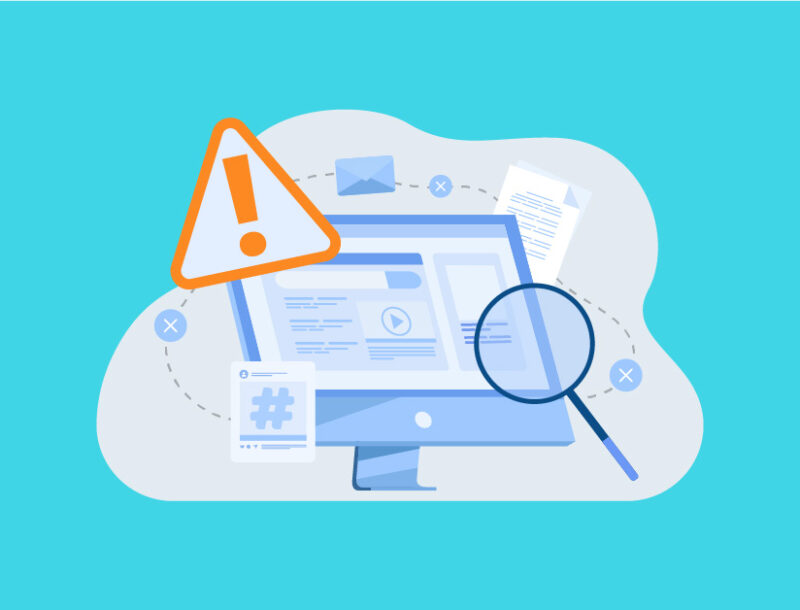Proactive Compliance Monitoring: Protecting Consumers & Your Brand

For banks and consumer finance companies, brand reputation is everything. Failure to address consumer issues and complaints, misleading or deceiving consumers in marketing communications, or a public enforcement action by a regulatory agency has the potential to tarnish a brand’s reputation overnight.
Consumers don’t take their financial services providers’ reputations lightly. All it takes is one negative news story, one viral TikTok video, or one public enforcement action for consumers to lose trust.
And, consumers are becoming increasingly aware of their rights and expectations from their financial services providers, including their ability to submit complaints to regulators (specifically, the Consumer Financial Protection Bureau or “CFPB”), as signaled by record volumes of consumer complaints in the CFPB’s Consumer Complaint Database in recent years.
So, how can consumer finance companies avoid regulatory pitfalls that lead to reputational damage, enforcement actions, and consumer harm?
By proactively monitoring marketing communications for compliance, organizations can better protect consumers and avoid the complaints that lead to investigations and enforcement actions by the CFPB.
The Impact of Consumer Complaints and Enforcement Actions
The CFPB uses consumer complaint data to supervise organizations and enforce regulatory compliance while identifying emerging issues in the marketplace.
Consumers’ complaints and organizations’ responses provide the Bureau with important information about the types of challenges consumers are experiencing and the effectiveness of an organization’s compliance management system.
The CFPB
It’s not uncommon for a CFPB to open up an investigation and take public enforcement actions based on either an influx of consumer complaints or a company’s failure to address complaints and resolve issues. Some past examples include a large remittance provider, a payment processor, a nonbank mortgage servicer, and even a global automaker, just to name a few.
Understanding Proactive Compliance Monitoring
What is Proactive Compliance Monitoring?
Proactive compliance monitoring is a systematic approach to regulatory and marketing compliance to ensure that all marketing materials, business practices, and consumer communications adhere to relevant laws, regulations, and guidelines before a potential violation occurs. It involves taking preventative measures upfront to ensure products and services are marketed clearly and accurately to avoid consumer harm and regulatory actions. Proactive compliance monitoring is intentional and should be integrated within the business.
Proactive vs. Reactive Compliance
Proactive compliance means constantly monitoring and adhering to all applicable laws, regulations, and guidelines to ensure that all operations, from marketing materials to customer communication, are compliant and accurate. It involves reviewing and approving content prior to publication and continuous monitoring of published content across marketing channels to catch and fix any potential compliance issues quickly.
Reactive compliance, on the other hand, is responding to compliance issues as they arise. Any corrective measures or adjustments are made after a violation has occurred, which could potentially lead to larger issues, including monetary penalties and enforcement actions. While it’s inevitable that unexpected compliance issues may arise, the reactive approach should not be your primary compliance strategy.
In simple terms, proactive compliance aims to prevent fires, and reactive compliance focuses on putting them out. The more effort put into proactively preventing compliance fires, the fewer fires to react to and, ultimately, less damage done to your organization.
Benefits of Proactive Compliance Monitoring
Being proactive in compliance monitoring offers significant benefits, including:
- Cost savings: While proactive compliance monitoring may be considered an upfront cost (think employee training, technology, etc.), you mitigate the risk of expensive reactive measures and potential penalties down the road, resulting in substantial cost savings
- Improved reputation: Taking a proactive approach to compliance and consumer protection sends a strong message to both regulators and consumers that you’re dedicated to conducting business the right way, leading to an increase in customer trust and loyalty
- Staying ahead of the curve: Regulations tend to evolve and tighten over time. Being proactive enables you to stay ahead of these changes and adapt in a manageable and systematic way
- Operational efficiency: By designing a robust and compliant process from the start, your organization can focus on its core operations and business growth without the constant threat of interruption by compliance issues
- Peace of mind: Proactive compliance monitoring gives you confidence, knowing that you’re doing everything within your power to comply with regulations and protect your consumers at all stages of the funnel
How Proactive Compliance Monitoring Helps Prevent Consumer Complaints and Enforcement Actions
There are two key ways that proactive compliance monitoring can help prevent consumer complaints and, in turn, enforcement actions.
First, consumers are most likely to complain if they feel deceived or unfairly treated. In today’s interconnected digital world, the first point of interaction for many consumers with a brand and its products often occurs through marketing channels.
Whether on social media, affiliate or partner websites, billboards, or any other promotional platform, the messages conveyed must be accurate and non-deceptive. Ensuring the honesty and integrity of these messages goes a long way in preventing consumer complaints right from the outset.
Secondly, monitoring across marketing channels can help organizations identify consumer complaints on public forums—like a consumer posting on social media, for example—before they escalate to regulators.
If a consumer has trouble getting in touch with an organization and getting their issue resolved, they’re more likely to submit a complaint to the regulators. In fact, the CFPB’s Consumer Response Annual Report cites that a majority of consumers attempted to resolve their issue with the company before submitting a complaint to the Bureau.
So, staying on top of these issues and having a system in place to catch and remediate them can help prevent future issues while bolstering consumer trust.
Using Technology for Proactive Compliance Monitoring
Implementing automated compliance monitoring technology, such as PerformLine, can significantly enhance your organization’s ability to stay ahead of regulatory changes, identify consumer complaints, and maintain compliance. Automated tools help reduce human error, save time, and help ensure you’re always up-to-date with evolving regulations.
With technology, not only can your organization monitor content across major marketing channels, including the web, social media, emails, calls, and messages, but you can also:
- Streamline marketing compliance review and approvals for content, proactively addressing potential issues before publication
- Discover unknown brand mentions or promotions across channels to identify and remediate compliance issues before they become a bigger issue
PerformLine for Proactive Compliance Monitoring
Help prevent compliance fires with the help of PerformLine’s omni-channel compliance monitoring solution. With automated discovery, review, and monitoring, your organization can stay proactive with compliance to help prevent consumer complaints and regulatory scrutiny.
Speak with our team of experts today to learn more.



